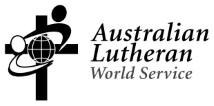An exciting way for congregations, schools and individuals to make a lasting impact in people’s lives is by partnering a Farm Group in Burundi!
Make a Lasting Impact
Through ALWS, you can partner a Farm Group in Burundi for families like Francois’ and Sephrose’s. Each Farm Group has 15-20 of the community’s most at-risk families.
Your support means farmers can grow enough food to feed their families + have seeds to plant for next season + have surplus harvest to sell for household essentials.
Francois can measure to the kilo the benefits of his Farm Group:
“I obtained 10kg of seeds and was able to harvest 65kg!” - Francois
Francois’ SIX TIMES SUCCESS helped feed his family PLUS buy clothes, shoes and school supplies for his children.
Francois aims to buy more land so his children can one day farm! Join us in partnering a Farm Group today.
As a Farm Partner, you will receive regular updates, so you can see your help in action!
- You receive Seasonal Reports direct from Burundi, so you can see your Farm Partnership’s progress!
Resources
An Integrated Approach
Your partnership provides:
• certified seeds – beans & maize
• hoes, shovels, machetes, rakes
• wheelbarrows
• phytosanitary products
You support modern farming:
• ploughing & seeding methods
• organo-mineral fertilisers
• pest and disease control
• composting
• reforestation
• soil water management
As you can see, all the development activities are designed to work together to create lasting change for the people of Burundi.
Community Empowerment
The empowerment approach to development seeks to give people in the villages the necessary training and support to make their own decisions about the development which happens in their village.
This means that they then have ownership of and responsibility for everything that happens, which is vital for on-going independence.
They maintain their dignity as they develop the confidence to work their way out of poverty and can feel excited about creating their own future!
Frequently Asked Questions
The empowerment approach followed by ALWS means that the opportunity for hands-on involvement is necessarily limited. Our experience shows that by far the best way to help people effectively and efficiently is to strengthen their capabilities to change their own lives. You can do this simply by gifts through ALWS that support projects owned and implemented by the community.
Unless someone is able to bring skills not locally available and can speak the local language, ‘helping out’ can create more work for project staff who already have demanding work schedules and very specific project objectives to meet.
Other factors such as accessibility (most villages are quite remote), limited infrastructure (such as accommodation) and security concerns also make visiting tricky.
To ensure our development projects bring permanent change to the community, we work to make sure projects are ‘owned’ by the community. Therefore, the villagers make the decisions about what is needed for the future of their village themselves.
They are able to do this because of the training they receive (provided by you through ALWS!) and because of the support of the development-trained Burundi staff who work with them in the village. They know their environment and situation well and are therefore best-placed to make these decisions.
This is such a fundamental part of the development process and you can be confident in the decisions made by the villagers with the support of the highly-skilled staff in Burundi!
